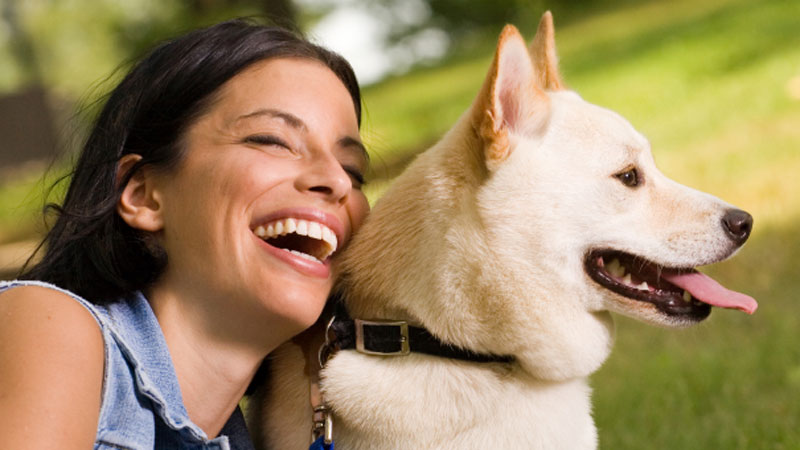Noise
Many dogs have anxiety over loud noises, and this is highlighted at this time of year with fireworks night on the horizon. It can be a very stressful few weeks for dogs and their owners.
Dogs can show a range of behaviours in response to a stressful event. Pacing and restlessness are very common, but some dogs will do the opposite and freeze. Lip licking, yawning, a furrowed brow or having the ears back are all subtle indications that your dog is anxious. Some dogs are much more obvious in their emotions with trembling, shaking, barking or whining. Some dogs will be on high alert; others will cower, hide or seek comfort from their owners. Panting and refusing food are other signs.
How you treat this anxiety also depends on how frequent the problem occurs. If it’s just a couple of times a year, on fireworks night for example, then medication can be used when the stressful event occurs but if the reactions are daily to things like building work or traffic noise then a training program with an animal behaviourist is probably a better option.
The type of medication used also depends on the severity of the dog’s reaction. A minor reaction with only a mild impact on the dog’s quality of life could be treated differently to a more intense reaction that significantly impacts the dog. Similarly, the length of time a dog takes to recover also has a bearing on treatment choice - some dogs will return to normal immediately the noise abates but others may take several days to fully recover.
If it is fireworks that scare your dog, then you can take some preventative measures. Close the curtains and keep the light on to reduce the visual stimulation. Play classical music or put the tv on to mask the sounds. Set up a safe place for your dog - this could be a wardrobe or under a bed, just somewhere the dog can feel secure and hide away. Don’t leave the dog on their own, your presence will be comforting especially if you are calm and relaxed. If dogs are very stressed, they may urinate, defaecate or be destructive - don’t punish this behaviour, it is a fear response not a naughty one. Try not to comfort your do, this reinforces their anxious behaviour as being the correct response.
With mild anxiety we have a variety of products on the market. They work by helping your dog cope with stress by supporting the natural calming pathways in the brain. Most need to be introduced a week before the anticipated stressful event, for fireworks I would suggest towards the end of October. They are very safe, do not cause sedative effects and can be used long term. Examples are Zylkene, Yucalm and Calmex.
To control more severe levels of anxiety, there has been a recent introduction of a drug called Sileo. It is a gel which can be administered by the owner at home onto the gums of the dog either before the noise starts or as soon as the dog starts to show symptoms of anxiety. The drug takes approximately 30 minutes to have a full effect and lasts for 2-3 hours. It can be given every 2 hours for up to 5 doses. It calms the dog without having any sedative affects.
If your dog suffers from any type of noise induced anxiety then do contact your vet for help, it is something that really affects quality of life for your dog and yourself.


